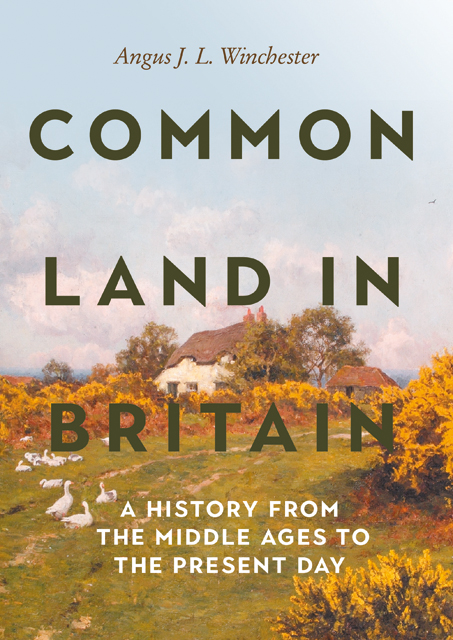Conclusion: Common Ground
Published online by Cambridge University Press: 20 December 2022
Summary
The bulk of this book has focused on the multiple meanings assigned to common land in Britain and how these have played out in the landscape across the centuries. Evolving conceptions of rights in land lie at the heart of the cultural context, shaping the shifting attitudes to commons. In drawing together this historical survey, this chapter begins by sketching out a history of common land, using these changing perceptions as a lens through which to view the story of commons in Britain. It takes a broad view, as a full picture of common land reaches beyond the shared use of agrarian resources, to embrace the wider place of commons in so many aspects of life.
Alan Everitt’s memorable phrase, that common land is ‘half-wild country’,1 has run as a thread throughout this book and gets to the heart of the ambiguities which lay behind perceptions of common land. Commons are neither one thing nor the other, neither fully wild, nor fully tamed landscapes; neither no man’s land nor fully private property; neither exclusively agrarian resource, nor unfettered public space. They were full of paradoxes and, thus, difficult to pigeonhole. ‘Half-wildness’ implies an inherent tension between tameness and wildness and also a restlessness: the multiple interests in common land and the different meanings and values assigned to it by different players have resulted in a fluid balance between the processes of taming and wilding across the centuries.
Multiple interests and shifting values are a theme which is prominent in much of the literature on commons. Contested rights surface repeatedly in tensions over who should be able to use common land and for what purposes. Uncertain boundaries and disputed ownership of common land recur, especially across the medieval period; the limit of common rights, both in terms of who could exercise them and how much resource could be taken, was a perennial issue across the early modern centuries; tensions between customary users of commons and those with formal property rights re-surface across the nineteenth and twentieth centuries; and the balance between private and public interests continues to be contested in the twenty-first century.
Those tensions spring from a paradox which lies at the heart of common land in Britain, namely that both English and Scots law define this communally-used land in terms of private property rights.
- Type
- Chapter
- Information
- Common Land in BritainA History from the Middle Ages to the Present Day, pp. 275 - 282Publisher: Boydell & BrewerPrint publication year: 2022



